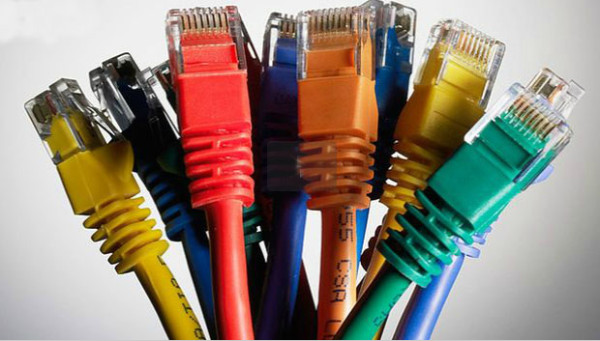Federal regulators have unveiled new rules that would effectively abandon net neutrality, the concept of a free and open Internet. The proposal from the Federal Communications Commission would allow Internet providers like Verizon or Comcast to charge media companies like Netflix or Amazon extra fees in order to receive preferential treatment, such as faster speeds for their content. If the new rules are voted on next month, the FCC will begin accepting public comments and issue final regulations by the end of summer. “What we’re really seeing here is the transformation of the Internet where the 1 percent get the fast lanes, and the 99 percent get the slow lanes,” says Michael Copps, retired FCC Commissioner. “If we let that happen, we have really undercut the potential of this transformative technology. This has to be stopped.” We are also joined by Astra Taylor, author of the new book, “The People’s Platform: Taking Back Power and Culture in the Digital Age.”
Transcript
This is a rush transcript. Copy may not be in its final form.
JUAN GONZÁLEZ: Federal regulators have unveiled new rules that would effectively abandon net neutrality, the concept of a free and open Internet. The proposal from the Federal Communications Commission would allow Internet providers like Verizon or Comcast to charge media companies like Netflix or Amazon extra fees in order to receive preferential treatment, such as faster speeds for their content. Under the FCC’s proposal, broadband providers would have to disclose the terms they offer for the more rapid lanes and would be required to act in what it called a, quote, “commercially reasonable manner.”
AMY GOODMAN: Media reform groups like Free Press denounced the new rules, saying, quote, “Giving the green light to pay-for-priority schemes will be a disaster for startups, nonprofits and everyday Internet users who cannot afford these unnecessary tolls. These users will all be pushed onto the Internet dirt road, while deep pocketed Internet companies enjoy the benefits of the newly created fast lanes,” Free Press said. In fact, this statement echoes what then-Senator Barack Obama said about net neutrality in 2007, when it was a key part of his campaign platform in the 2008 presidential election.
SEN. BARACK OBAMA: I will take a backseat to no one in my commitment to network neutrality, because once providers start to privilege some applications or websites over others, then the smaller voices get squeezed out, and we all lose. The Internet is perhaps the most open network in history, and we have to keep it that way.
AMY GOODMAN: That was November 2007.
Well, if the FCC approves the draft rules on net neutrality next month, it will then accept public comments and issue final regulations by the end of the summer.
For more, we’re joined in Washington, D.C., by the longest-serving member of the Federal Communications Commission, Michael Copps. He retired in 2012. He’s now advising the Media and Democracy Reform program. And here in New York, Astra Taylor is with us, author of the new book The People’s Platform: Taking Back Power and Culture in the Digital Age.
We welcome you both to Democracy Now! Juan, you also wrote your column in the New York Daily News, headlined “FCC Flip-Flop Could Turn the Internet into the Superhighway of the Rich.”
JUAN GONZÁLEZ: Yes, and actually, I called it maybe the Bo Jackson Turnpike, because when President Obama nominated the current FCC chairman, Tom Wheeler, to take over the FCC, he referred to him as the “Bo Jackson of telecom,” by referring to—Bo Jackson was an athlete who was an all-star in both football and baseball and was an all-star in both of those sports. And Wheeler is the only person ever inducted into both the cable industry hall of fame and the telecom hall of fame, because he was a lobbyist for both of those industries before he became the FCC chairman. And so it’s under Wheeler now, apparently, that the FCC is moving in this direction to create this superhighway for those who can pay on the Internet.
Read the Full Transcript at the Democracy Now! site










